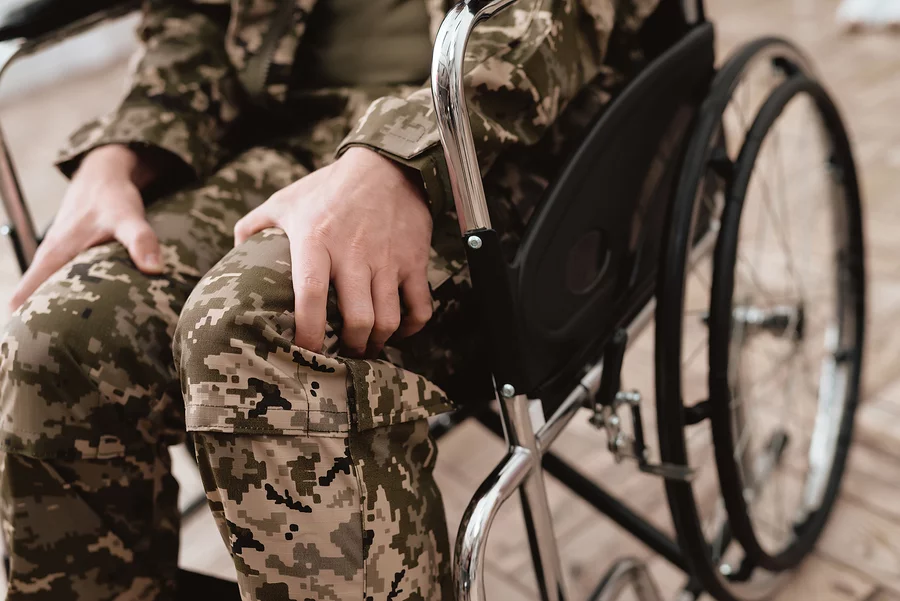Disabled veterans in the United States may be eligible for various disability benefits provided by the Department of Veterans Affairs (VA). The two primary disability benefit programs for veterans are:
1. Disability Compensation:
- Purpose: Disability Compensation is a tax-free benefit paid to veterans with disabilities that are service-connected. It is intended to compensate veterans for the average impairment in earning capacity resulting from service-related injuries or diseases.
- Eligibility Criteria:
- The veteran must have a service-connected disability.
- The disability must be linked to an injury or disease that occurred or was aggravated during active military service.
- Application Process:
- Veterans can apply for Disability Compensation by submitting a claim to the VA. The application should include medical evidence supporting the service connection of the disability.
- Veterans can apply online through the VA’s eBenefits portal or submit a paper application (VA Form 21-526EZ).
- Rating and Compensation:
- The VA assigns disability ratings on a scale of 0% to 100%, indicating the severity of the service-connected disability.
- Compensation amounts are determined based on the assigned disability rating. Higher ratings result in higher compensation.
- Additional Benefits:
- Veterans with a disability rating of 30% or higher may be eligible for additional allowances for dependents.
- Special Monthly Compensation (SMC) may be available for veterans with specific severe disabilities or combinations of disabilities.
2. Pension with Aid and Attendance or Housebound Allowance:
- Purpose: Veterans and surviving spouses who require the aid and attendance of another person or are housebound due to a permanent disability may be eligible for a pension with additional allowances.
- Eligibility Criteria:
- The veteran must have served during a period of war.
- The veteran must meet certain income and net worth limits.
- The veteran must meet medical eligibility criteria for aid and attendance or housebound status.
- Application Process:
- Veterans can apply for a pension with aid and attendance or housebound allowance by submitting a claim to the VA. The application should include medical evidence supporting the need for assistance.
- Allowances:
- Aid and Attendance Allowance provides additional funds for veterans who need the aid and attendance of another person for daily activities.
- Housebound Allowance provides additional funds for veterans who are substantially confined to their homes due to a permanent disability.
3. Vocational Rehabilitation and Employment (VR&E) Program:
- Purpose: The VR&E Program assists veterans with service-connected disabilities in achieving meaningful employment and maximizing their independence.
- Eligibility Criteria:
- Veterans with a service-connected disability rating of at least 10% may be eligible.
- Veterans must need vocational rehabilitation services to overcome barriers to employment.
- Services Provided:
- Educational and vocational counseling
- Employment services, including job training and placement
- Rehabilitation services, such as medical care, assistive technology, and other accommodations
- Application Process:
- Veterans can apply for the VR&E Program by working with a Vocational Rehabilitation Counselor (VRC). The VRC will assess the veteran’s needs and develop an individualized rehabilitation plan.
4. Other Benefits and Programs:
- Special Monthly Compensation (SMC):
- Additional compensation for veterans with severe disabilities or combinations of disabilities.
- Available for loss or loss of use of specific organs or extremities.
- Dependency and Indemnity Compensation (DIC):
- Monthly benefit for surviving spouses, children, and dependent parents of veterans who died from a service-related injury or disease.
- Healthcare Benefits:
- VA healthcare benefits for eligible veterans, providing comprehensive medical care and treatment for service-connected and non-service-connected conditions.
- Home Loans and Housing Assistance:
- VA Home Loans for eligible veterans to purchase, build, or refinance a home.
- Housing grants for veterans with certain service-connected disabilities to adapt their homes for accessibility.
- Educational Benefits:
- GI Bill benefits for education and training for eligible veterans and dependents.
5. Application and Appeals Process:
- Veterans can apply for disability benefits through the VA’s online portal (eBenefits) or by submitting paper applications.
- The appeals process is available for veterans dissatisfied with the initial decision on their disability claim.
Navigating the VA disability benefits system can be complex, and veterans are encouraged to seek assistance from Veterans Service Organizations (VSOs) or legal representatives to ensure accurate and timely processing of their claims.

